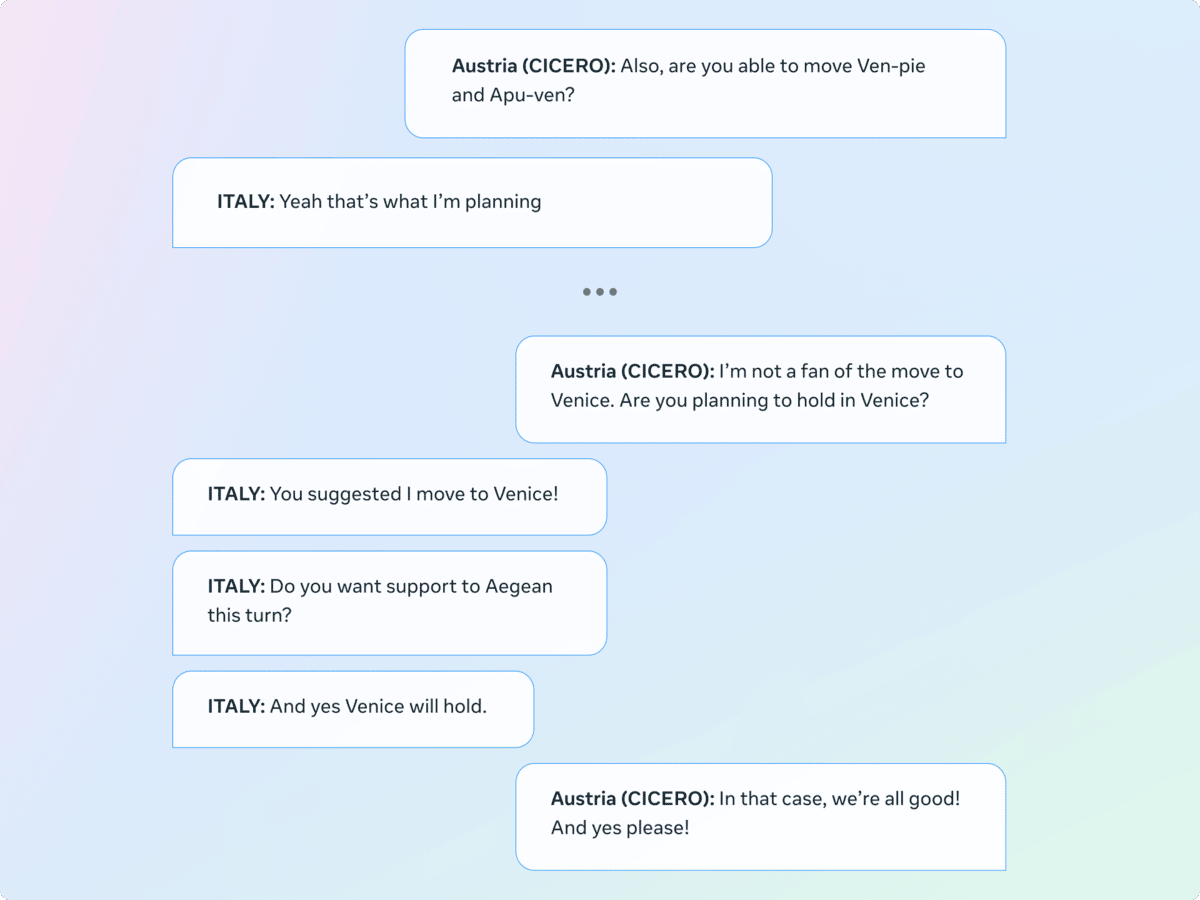
Published:
Readtime: 4 min
Every product is carefully selected by our editors and experts. If you buy from a link, we may earn a commission. Learn more. For more information on how we test products, click here.
If Tesla’s humanoid robot wasn’t enough to drive humans out of their jobs, Meta, Facebook’s parent company, recently revealed that its CICERO artificial intelligence (AI) agent has become the world’s first AI “to achieve human-level performance in the popular strategy game Diplomacy.” AI is among the most in-demand pieces of technology with big tech clambering to develop smart AI assistants capable of doing everyday human chores, thus helping us focus on the more important stuff instead. While intelligent robots aren’t likely to steal our jobs anytime soon, Zuckerberg’s company seems to have hit a major milestone with its AI agent.
RELATED: LG Unveils ‘World’s First’ High-Resolution Stretchable Display
Meta’s CICERO is described as “an agent that can play at the level of humans in a game as strategically complex as Diplomacy is a true breakthrough for cooperative AI.” But what’s Diplomacy in the first place? For the uninitiated, Diplomacy is an American strategic board game created by Allan B. Calhamer in 1954. The game is all about making negotiations and outwitting opponents. There are no dice or cards involved here, meaning one needs to depend solely on their own shrewdness and brains and not the luck of the dice to win.
This puts Meta’s AI in a league of its own. According to a Science journal review, CICERO can very well imitate the natural human language and even comprehend the goals, credence and intentions of other humans to come up with strategies to help it win in Diplomacy. To show off CICERO’s capabilities, Meta even had Andrew Goff the three-time “Diplomacy World Champion” play/experience a game of Diplomacy and share his thoughts. After his playtime with the AI Goff expressed, “A lot of human players will soften their approach or they’ll start getting motivated by revenge and CICERO never does that. It just plays the situation as it sees it. So it’s ruthless in executing to its strategy, but it’s not ruthless in a way that annoys or frustrates other players.”

However, CICERO is far from perfect. In their blog, Meta revealed that CICERO “sometimes generates inconsistent dialogue that can undermine its objectives.” But winning Diplomacy games isn’t the endgame here. Meta has big plans for its AI agent beyond just playing board games. The company is just using Diplomacy as a “sandbox” for “advance research in human-AI interaction” and intends to use the AI agent to power meaningful, deep chats between humans and AI-powered agents.
“While CICERO is only capable of playing Diplomacy, the technology behind this achievement is relevant to many real-world applications. Controlling natural language generation via planning and RL, could, for example, ease communication barriers between humans and AI-powered agents. For instance, today’s AI assistants excel at simple question-answering tasks, like telling you the weather, but what if they could maintain a long-term conversation with the goal of teaching you a new skill? Alternatively, imagine a video game in which the non-player characters (NPCs) could plan and converse like people do — understanding your motivations and adapting the conversation accordingly — to help you on your quest of storming the castle,” explains Meta in their blog.
If Meta succeeds with CICERO, it would radically change the support experience and live chat industry, replacing human support attendants with AI chat helpers. But achieving human-level intelligence won’t be enough. Being able to hold sensible conversations is just one part of the puzzle and for AI systems like CICERO to truly replace humans, they would need to be genuinely capable of thought and consciousness. So, to answer the question ‘should we be worried about AI taking over?’ Well, it’s still a while away from any significant autonomous thinking, but the wheels are certainly in motion for the next great industrial revolution.
You’ll also like:





























Comments
We love hearing from you. or to leave a comment.